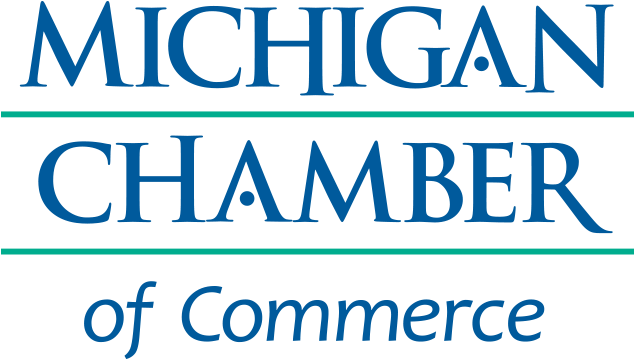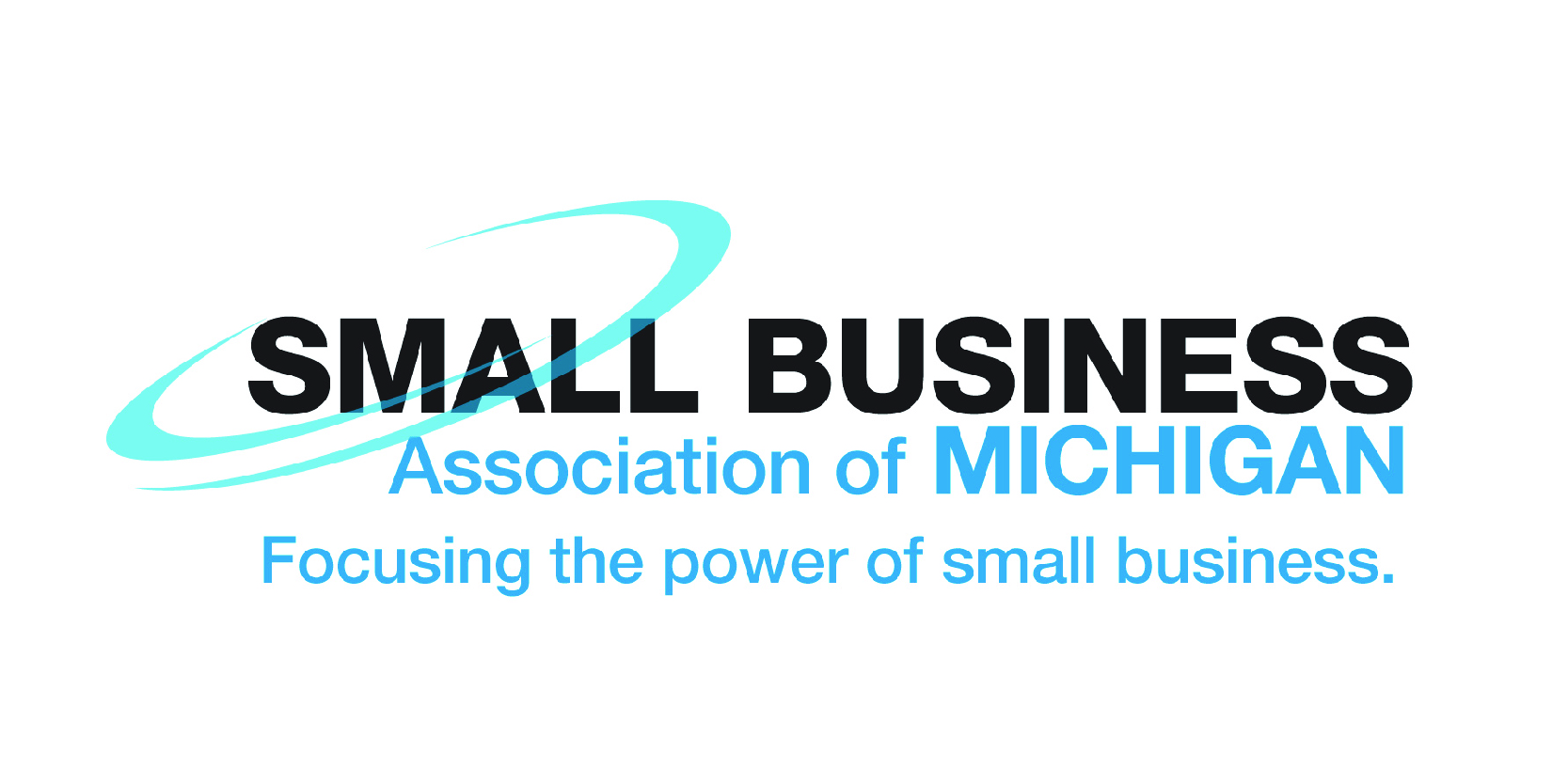
During a virtual Town Hall with the Michigan Chamber of Commerce and Grand Rapids Chamber on Wednesday, Aug. 28, the Detroit Regional Chamber discussed compliance and legislative strategies to adjust the new Paid Leave and Minimum Wage changes before its February 2025 mandate.
 Brad Williams, the Detroit Regional Chamber’s Vice President of Government Relations (left), explained a two-pronged strategy of compliance by helping Michigan businesses understand their obligations right now and legislative work to soften the impact of this adverse ruling.
Brad Williams, the Detroit Regional Chamber’s Vice President of Government Relations (left), explained a two-pronged strategy of compliance by helping Michigan businesses understand their obligations right now and legislative work to soften the impact of this adverse ruling.
Five Key Requests
The Chambers, along with a larger coalition of business organizations, are asking the legislature to make the following amendments to alleviate the current ruling’s complexities:
- Exempt plans that meet or exceed the mandated 72 hours.
- Exempt small businesses and certain workers (including part-time and seasonal employees).
- Require time to be used in full- and half-day increments and allow employers to require advanced notice.
- Eliminate private right of action and rebuttable presumption.
- Allow employers to frontload 72 hours at the start of the year.
“What made sense in 2018 doesn’t make as much sense now,” Williams said. “We’re not trying to overturn what the petitioners put before the legislature; we’re trying to help them implement it in a way that actually works.”
What Business Leaders Can Do Now
Time is of the essence as the election season kicks into high gear, which is soon followed by a lame-duck session. Therefore, business leaders must connect with their lawmakers right away – preferably in person or over the phone – to share why this ruling is problematic and ask for a common-sense solution before 2024 ends.
Williams and Josh Lunger, the Grand Rapids Chamber’s Vice President of Government Affairs, stressed that business owners do not need to be experts on the ruling itself; simply connecting with their Michigan House and Senate representatives and sharing personal anecdotes regarding this ruling makes a big difference.
“The requests are approachable [to the lawmakers]. The challenge is politics.” Lunger said. “But the more personal you make it, taking a few minutes out of your day … will stick in the brains of these lawmakers.”
The Chamber’s Efforts
The Detroit Regional Chamber is working proactively to give its members the most updated information and resources, including a platform where members can submit questions.
The Chamber’s Government Relations team is also working with other major Michigan business groups and legislative leaders to create amendments to these extreme rulings. Chamber members have the added benefit of receiving advice and help on reaching out to legislative leaders from the Chamber’s Government Relations team.
The Chamber will continue to update and provide resources for members on this critical issue.
Related: Dykema on Paid Leave and Minimum Wage Changes: ‘Be Prepared’
Below is the original release of information on this topic that we shared from SBAM, the Small Business Association of Michigan earlier this month:
Understanding New Paid Sick Leave and Minimum Wage Requirements
The Michigan Supreme Court decided on July 31, 2024 that the 2018 Minimum Wage and Paid Sick Leave law changes were not constitutional. This ruling now means there are three big changes on the horizon.
Small Business Briefing: Understanding New Paid Sick Leave and Minimum Wage Requirements
August 2, 2024
The Michigan Supreme Court decided on July 31, 2024 that the 2018 Minimum Wage and Paid Sick Leave law changes were not constitutional. This ruling now means there are three big changes on the horizon:
- A series of increases in the regular minimum wage (currently $10.33/hour)
- A phase out of the tipped wage credit (currently 38% of minimum wage)
- A specific and complex Paid Sick Leave benefit
Minimum Wage & Tipped Wage
The new minimum wage and tipped wage schedule beginning February 21, 2025, is as follows:
- The minimum wage will increase to $12 per hour.
- Tipped wages will begin to phase out, with an initial increase by at least $2 per hour in February to be adjusted for inflation.
- The minimum wage will continue to increase after 2025 and is estimated to reach $15 per hour by 2028.
February 21, 2025: The minimum hourly wage will be $10.00 plus the state treasurer’s inflation adjustment, using July 31, 2024, as the endpoint for that calculation. The tip credit will be 48% of minimum wage. We estimate that this will be around $12.50.
February 21, 2026: The minimum hourly wage will be $10.65 plus the state treasurer’s inflation adjustment, using July 31, 2024, as the endpoint for that calculation. The tip credit will be 60% of minimum wage.
February 21, 2027: The minimum hourly wage will be $11.35 plus the state treasurer’s inflation adjustment, using July 31, 2024, as the endpoint for that calculation. The tip credit will be 70% of minimum wage.
February 21, 2028: The minimum hourly wage will be $12.00 plus the state treasurer’s inflation adjustment, using July 31, 2024, as the endpoint for that calculation. The tip credit will be 80% of minimum wage.
February 21, 2029 (originally 2023 and after): The state treasurer shall calculate the inflation-adjusted minimum wage as set forth in 2018 PA 337, § 4(2). The tip credit will no longer exist.
Paid Sick Leave Requirements
Businesses with 10 or more employees must provide at least 72 hours of paid sick leave each year, while businesses with fewer than 10 employees must provide at least 40 hours.
- Applicable to all employees, including seasonal, part-time, and full-time.
- Immediate eligibility for accrued benefit; waiting periods are unlawful.
- Accrual rates differ based on company size.
- Benefit must carry over year to year.
- Front end loading appears to be disallowed.
- Paid benefit rate must match the average hourly rate of the previous pay period.
The Supreme Court’s decision means that employers:
- May not require documentation for leave of 3 days or less.
- May require documentation for leave beyond 3 days, but cannot limit it beyond a ‘health care professional’.
- Must pay for the out-of-pocket cost of getting the documentation if required.
- Must track hours to show compliance with statutory minimums for up to 3 years.
On August 1, 2024, SBAM President & CEO Brian Calley hosted a special edition of our Small Business Briefing outlining the ruling and implications, and answered member questions. Watch below.
If this ruling will negatively impact your business, take SBAM’s Call to Action and tell your legislators.
####
The Small Business Association of Michigan focuses solely on serving the needs of Michigan’s small business community through advocacy, collaboration and buying power. Today they serve over 32,000 members in all 83 counties of Michigan. SBAM is located in Lansing, just one block from the Capitol.
Images courtesy of Detroit Regional Chamber and SBAM

















